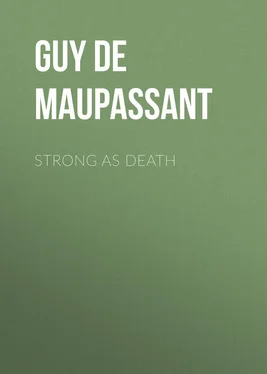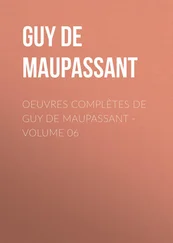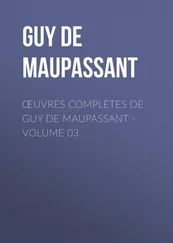Guy Maupassant - Strong as Death
Здесь есть возможность читать онлайн «Guy Maupassant - Strong as Death» — ознакомительный отрывок электронной книги совершенно бесплатно, а после прочтения отрывка купить полную версию. В некоторых случаях можно слушать аудио, скачать через торрент в формате fb2 и присутствует краткое содержание. Жанр: literature_19, foreign_antique, foreign_prose, на английском языке. Описание произведения, (предисловие) а так же отзывы посетителей доступны на портале библиотеки ЛибКат.
- Название:Strong as Death
- Автор:
- Жанр:
- Год:неизвестен
- ISBN:нет данных
- Рейтинг книги:4 / 5. Голосов: 1
-
Избранное:Добавить в избранное
- Отзывы:
-
Ваша оценка:
- 80
- 1
- 2
- 3
- 4
- 5
Strong as Death: краткое содержание, описание и аннотация
Предлагаем к чтению аннотацию, описание, краткое содержание или предисловие (зависит от того, что написал сам автор книги «Strong as Death»). Если вы не нашли необходимую информацию о книге — напишите в комментариях, мы постараемся отыскать её.
Strong as Death — читать онлайн ознакомительный отрывок
Ниже представлен текст книги, разбитый по страницам. Система сохранения места последней прочитанной страницы, позволяет с удобством читать онлайн бесплатно книгу «Strong as Death», без необходимости каждый раз заново искать на чём Вы остановились. Поставьте закладку, и сможете в любой момент перейти на страницу, на которой закончили чтение.
Интервал:
Закладка:
Then she was overcome with the emotion of that moment; she hid her face in her hands, then she suddenly sprang to her feet, caught up her hat which had fallen to the floor, put it on her head and rushed away, in spite of the supplications of Olivier, who held a fold of her skirt.
As soon as she was in the street, she had a desire to sit down on the curbstone, her limbs were so exhausted and powerless. A cab was passing; she called to it and said to the driver: “Drive slowly, and take me wherever you like.” She threw herself into the carriage, closed the door, sank back in one corner, feeling herself alone behind the raised windows – alone to think.
For some minutes she heard only the sound of the wheels and the jarring of the cab. She looked at the houses, the pedestrians, people in cabs and omnibuses, with a blank gaze that saw nothing; she thought of nothing, as if she were giving herself time, granting herself a respite before daring to reflect upon what had happened.
Then, as she had a practical mind and was not lacking in courage, she said to herself: “I am a lost woman!” For some time she remained under that feeling of certainty that irreparable misfortune had befallen her, horror-struck, like a man fallen from a roof, knowing that his legs are broken but dreading to prove it to himself.
But, instead of feeling overwhelmed by the anticipation of suffering, her heart remained calm and peaceful after this catastrophe; it beat slowly, softly, after the fall that had terrified her soul, and seemed to take no part in the perturbation of her mind.
She repeated aloud, as if to understand and convince herself: “Yes, I am a lost woman.” No echo of suffering responded from her heart to this cry of her conscience.
She allowed herself to be soothed for some time by the movement of the carriage, putting off a little longer the necessity of facing this cruel situation. No, she did not suffer. She was afraid to think, that was all; she feared to know, to comprehend, and to reflect; on the contrary, in that mysterious and impenetrable being created within us by the incessant struggle between our desires and our will, she felt an indescribable peace.
After perhaps half an hour of this strange repose, understanding at last that the despair she had invoked would not come, she shook off her torpor and murmured: “It is strange: I am hardly sorry even!”
Then she began to reproach herself. Anger awakened within her against her own blindness and her weakness. How had she not foreseen this, not comprehended that the hour for that struggle must come; that this man was so dear to her as to render her cowardly, and that sometimes in the purest hearts desire arises like a gust of wind, carrying the will before it?
But, after she had judged and reprimanded herself severely, she asked herself what would happen next?
Her first resolve was to break with the painter and never to see him again. Hardly had she formed this resolution before a thousand reasons sprang up as quickly to combat it. How could she explain such a break? What should she say to her husband? Would not the suspected truth be whispered, then spread abroad?
Would it not be better, for the sake of appearances, to act, with Olivier Bertin himself, the hypocritical comedy of indifference and forgetfulness, to show him that she had effaced that moment from her memory and from her life?
But could she do it? Would she have the audacity to appear to recollect nothing, to assume a look of indignant astonishment in saying: “What would you with me?” to the man with whom she had actually shared that swift and ardent emotion?
She reflected a long time, and decided that any other solution was impossible.
She would go to him courageously the next day, and make him understand as soon as she could what she desired him to do. She must not use a word, an allusion, a look, that could recall to him that moment of shame.
After he had suffered – for assuredly he would have his share of suffering, as a loyal and upright man – he would remain in future that which he had been up to the present.
As soon as this new resolution was formed, she gave her address to the coachman and returned home, profoundly depressed, with a desire to take to her bed, to see no one, to sleep and forget. Having shut herself up in her room, she remained there until the dinner hour, lying on a couch, benumbed, not wishing to agitate herself longer with that thought so full of danger.
She descended at the exact hour, astonished to find herself so calm, and awaited her husband with her ordinary demeanor. He appeared, carrying their little one in his arms; she pressed his hand and kissed the child, and felt no pang of anguish.
Monsieur de Guilleroy inquired what she had been doing. She replied indifferently that she had been posing, as usual.
“And the portrait – is it good?” he asked.
“It is coming on very well.”
He spoke of his own affairs, in his turn; he enjoyed talking, while dining, of the sitting of the Chamber, and of the discussion of the proposed law on the adulteration of food-stuffs.
This rather tiresome talk, which she usually endured amiably, now irritated her, and made her look with closer attention at the man who was vulgarly loquacious in his interest in such things; but she smiled as she listened, and replied pleasantly, more gracious even than usual, more indulgent toward these banalities. As she looked at him she thought: “I have deceived him! He is my husband, and I have deceived him! How strange it is! Nothing can change that fact, nothing can obliterate it! I closed my eyes. I submitted for a few seconds, a few seconds only, to a man’s kisses, and I am no longer a virtuous woman. A few seconds in my life – seconds that never can be effaced – have brought into it that little irreparable fact, so grave, so short, a crime, the most shameful one for a woman – and yet I feel no despair! If anyone had told me that yesterday, I should not have believed it. If anyone had convinced me that it would indeed come to pass, I should have thought instantly of the terrible remorse that would fill my heart to-day.”
Monsieur de Guilleroy went out after dinner, as he did almost every evening. Then the Countess took her little daughter on her lap, weeping over her and kissing her; the tears she shed were sincere, coming from her conscience, not from her heart.
But she slept very little. Amid the darkness of her room, she tormented herself afresh as to the dangers of the attitude toward the painter that she purposed to assume; she dreaded the interview that must take place the following day, and the things that he must say to her, looking her in the face meanwhile.
She arose early, but remained lying on her couch all the morning, forcing herself to foresee what it was she had to fear and what she must say in reply, in order to be ready for any surprise.
She went out early, that she might yet think while walking.
He hardly expected her, and had been asking himself, since the evening before, what he should do when he met her.
After her hasty departure – that flight which he had not dared to oppose – he had remained alone, still listening, although she was already far away, for the sound of her step, the rustle of her skirt, and the closing of the door, touched by the timid hand of his goddess.
He remained standing, full of deep, ardent, intoxicating joy. He had won her, her ! That had passed between them! Was it possible? After the surprise of this triumph, he gloated over it, and, to realize it more keenly, he sat down and almost lay at full length on the divan where he had made her yield to him.
He remained there a long time, full of the thought that she was his mistress, and that between them, between the woman he had so much desired and himself, had been tied in a few moments that mysterious bond which secretly links two beings to each other. He retained in his still quivering body the piercingly sweet remembrance of that wild, fleeting moment when their lips had met, when their beings had united and mingled, thrilling together with the deepest emotion of life.
Читать дальшеИнтервал:
Закладка:
Похожие книги на «Strong as Death»
Представляем Вашему вниманию похожие книги на «Strong as Death» списком для выбора. Мы отобрали схожую по названию и смыслу литературу в надежде предоставить читателям больше вариантов отыскать новые, интересные, ещё непрочитанные произведения.
Обсуждение, отзывы о книге «Strong as Death» и просто собственные мнения читателей. Оставьте ваши комментарии, напишите, что Вы думаете о произведении, его смысле или главных героях. Укажите что конкретно понравилось, а что нет, и почему Вы так считаете.












